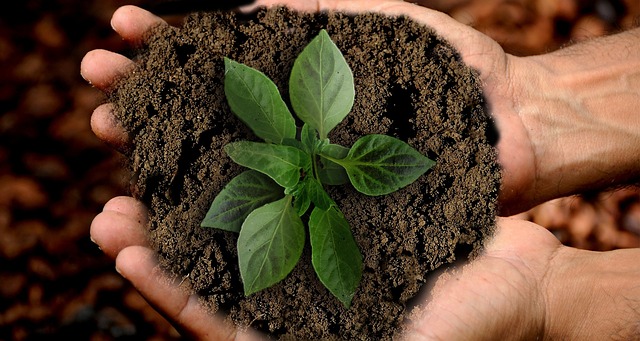Photo by Annca Pictures
Sustainability is defined in many ways, but the most common definition is that sustainable development meets the needs of the present generation without compromising the ability of future generations to meet their own needs. In other words, sustainability is about meeting our own needs without damaging or depleting the resources we will need in the future.
The term “sustainability” is often used when talking about environmental issues, but it can also be applied to social and economic issues.
“The greatest threat to our planet is the belief that someone else will save it.” – Robert Swan
The Importance of Sustainability
Why We Need to Preserve Our Planet
As the world progresses, it is becoming more apparent and important to preserve our planet. Sustainability has become a key word in recent years, and for good reason. Our planet is finite, and we are damaging it at an alarming rate. If we don’t change our ways, we will eventually destroy the very thing that sustains us – our home.
There are many reasons why sustainability is so important. For one, it’s essential for our survival. The earth provides us with everything we need to live – food, water, air, shelter. We depend on these things to survive, and if we don’t take care of them, they won’t be there for us in the future.
In addition to being necessary for our survival, sustainability is also important for the sake of future generations.
How can sustainability help society?
As society becomes more aware of the importance of sustainability, sustainable practices are becoming more common. Sustainability is important for many reasons, including reducing greenhouse gas emissions, conserving resources, and protecting ecosystems.
Sustainability can help reduce greenhouse gas emissions by promoting energy efficiency and the use of renewable energy sources. For example, insulating homes and buildings can reduce energy consumption, and solar panels can provide an alternative to fossil fuels. In addition, sustainable practices such as recycling and composting can help reduce the amount of waste that is sent to landfills.
Conserving resources is another important reason to promote sustainability. By using less water and energy, we can reduce our impact on the environment. In addition, sustainable practices such as using recycled materials can help save resources.
Sustainability is important for protecting ecosystems
Sustainability is important for protecting ecosystems because it helps to ensure that the natural world can continue to provide the resources and services that humans rely on.
Sustainability also helps to protect biodiversity, which is essential for the health of ecosystems. By reducing our impact on the environment, we can help to preserve the many different species of plants and animals that make up our planet’s unique ecosystems.
Sustainability Examples
As the world progresses, more and more cities are becoming aware of the importance of sustainability. This is evident in the way that many cities are now using sustainable practices to improve their communities and reduce their environmental impact. This can include things like using renewable energy sources, increasing recycling and composting, and encouraging green transportation options. Some cities that have used sustainability to their advantage include Amsterdam, Barcelona, Copenhagen, Curitiba, and Stockholm.
San Francisco, California is a great example of a city using sustainability. The city has made a commitment to reduce its greenhouse gas emissions by 25 percent by 2020. In order to achieve this, the city has implemented various programs such as energy efficiency upgrades, solar power installations, and electric vehicle infrastructure development.
Portland, Oregon is another city that is leading the way in sustainability. The city has set a goal to become carbon-neutral by 2030. To achieve this, Portland is investing in renewable energy, electric vehicles, and energy efficiency. The city is also working on reducing waste and increasing recycling rates.
We do not inherit the earth from our ancestors; we borrow it from our children – Anonymous
What Can We Do?
You don’t have to be a sustainability expert to make a difference. Here are some simple tips that everyone can do to help make the world a little bit greener.
Reduce, reuse, recycle. This is the mantra of sustainability and it’s something that everyone can do. Instead of throwing away items that can be reused or recycled, think about how you can give them a second life.
Conserving energy is another sustainable practice that everyone can do. simple things like turning off lights when you leave a room or unplugging electronics when they’re not in use can save a lot of energy over time.
Finally, one of the best things you can do for the environment is to educate yourself and others about sustainability. The more people know about sustainability, the more likely we are to achieve our environmental goals.
Final Thoughts
Sustainability is important because it is our responsibility to future generations. We must take care of the planet so that future generations can enjoy its beauty and bounty. We have a duty to protect ecosystems for the sake of all life on Earth, now and into the future.
Sustainability Terminology
**Definition:** Sustainability refers to the ability of a system or process to maintain its viability and function over time without compromising the needs of future generations. It encompasses environmental, social, and economic dimensions.
**Key Aspects:** * **Environmental Sustainability:** * Conserving natural resources (e.g., water, soil, energy) * Minimizing pollution and waste * Protecting biodiversity * **Social Sustainability:** * Promoting human well-being (e.g., health, education, social justice) * Fostering community engagement * Ensuring equal access to resources * **Economic Sustainability:** * Achieving financial viability * Balancing economic growth with environmental and social priorities * Creating sustainable jobs **Importance:** Sustainability is crucial for: * Preserving the planet’s resources and ecosystems for future generations * Ensuring the well-being of human societies * Fostering economic growth and stability * Mitigating climate change and other environmental challenges **Challenges:** * Balancing competing interests (e.g., economic development vs. environmental protection) * Addressing global interconnectedness and the impact of actions in one place on others * Overcoming short-term thinking and promoting long-term solutions * Lack of resources and capacity in some regions **Solutions:** Promoting sustainability requires: * Collaboration between governments, businesses, and communities * Investment in sustainable infrastructure, technologies, and practices * Education and awareness-raising * Policy frameworks that incentivize sustainable behavior * Monitoring and reporting on progress towards sustainability goals **Examples:** * **Renewable energy:** Solar panels, wind turbines * **Green buildings:** Energy-efficient design, water conservation * **Sustainable farming:** Regenerative practices, organic production * **Circular economy:** Reducing waste, reusing materials * **Social responsibility:** Fair labor practices, community investment






5